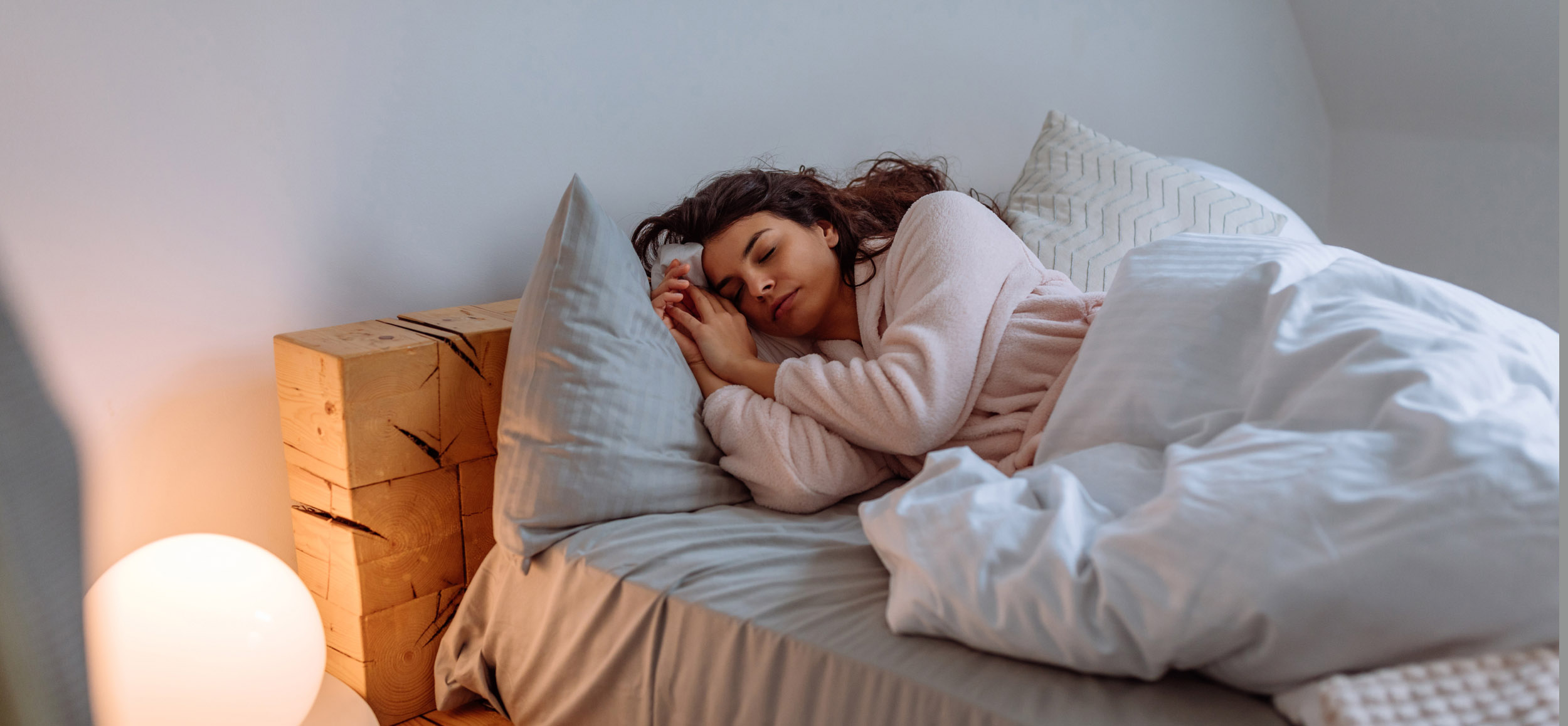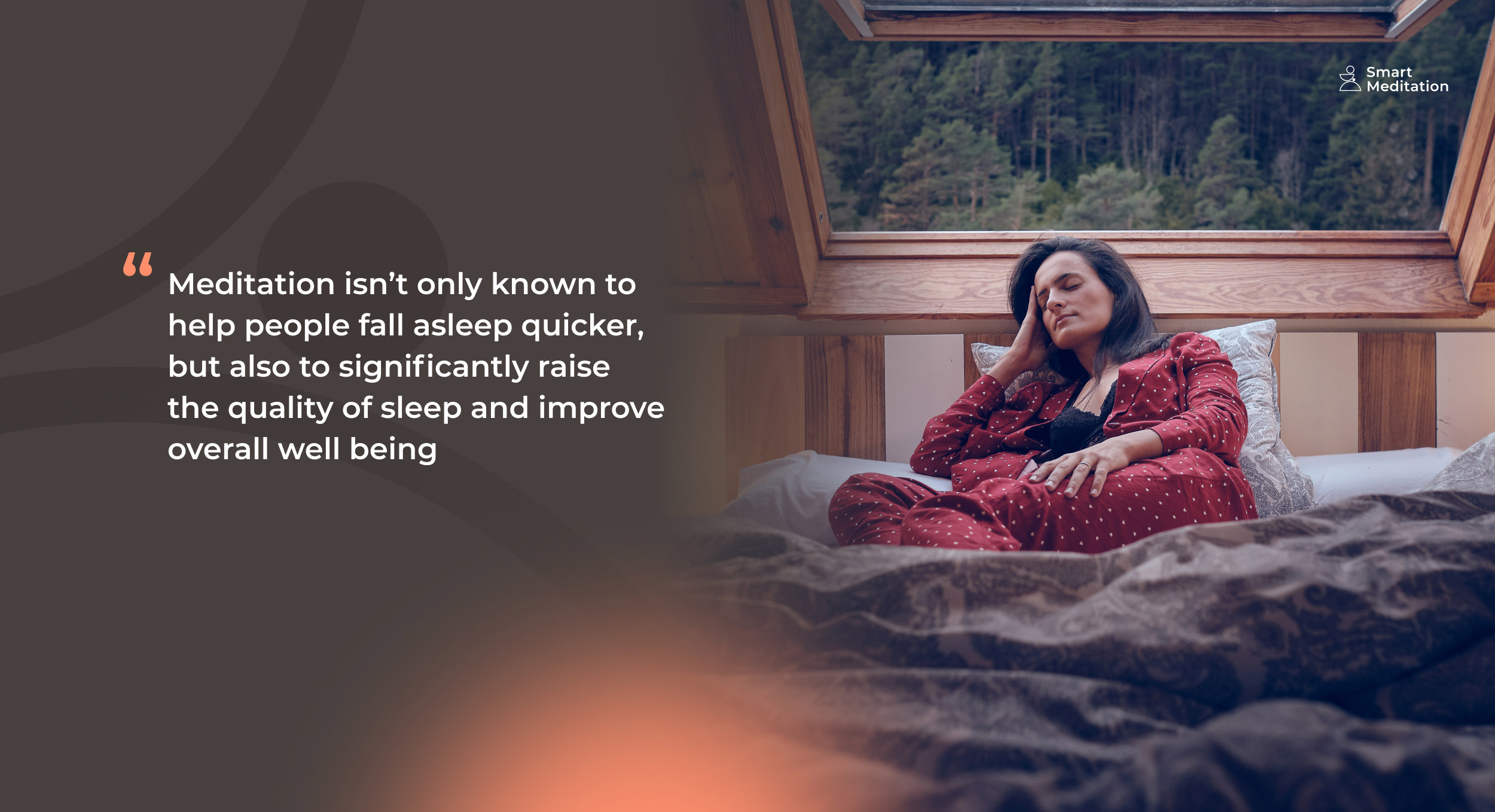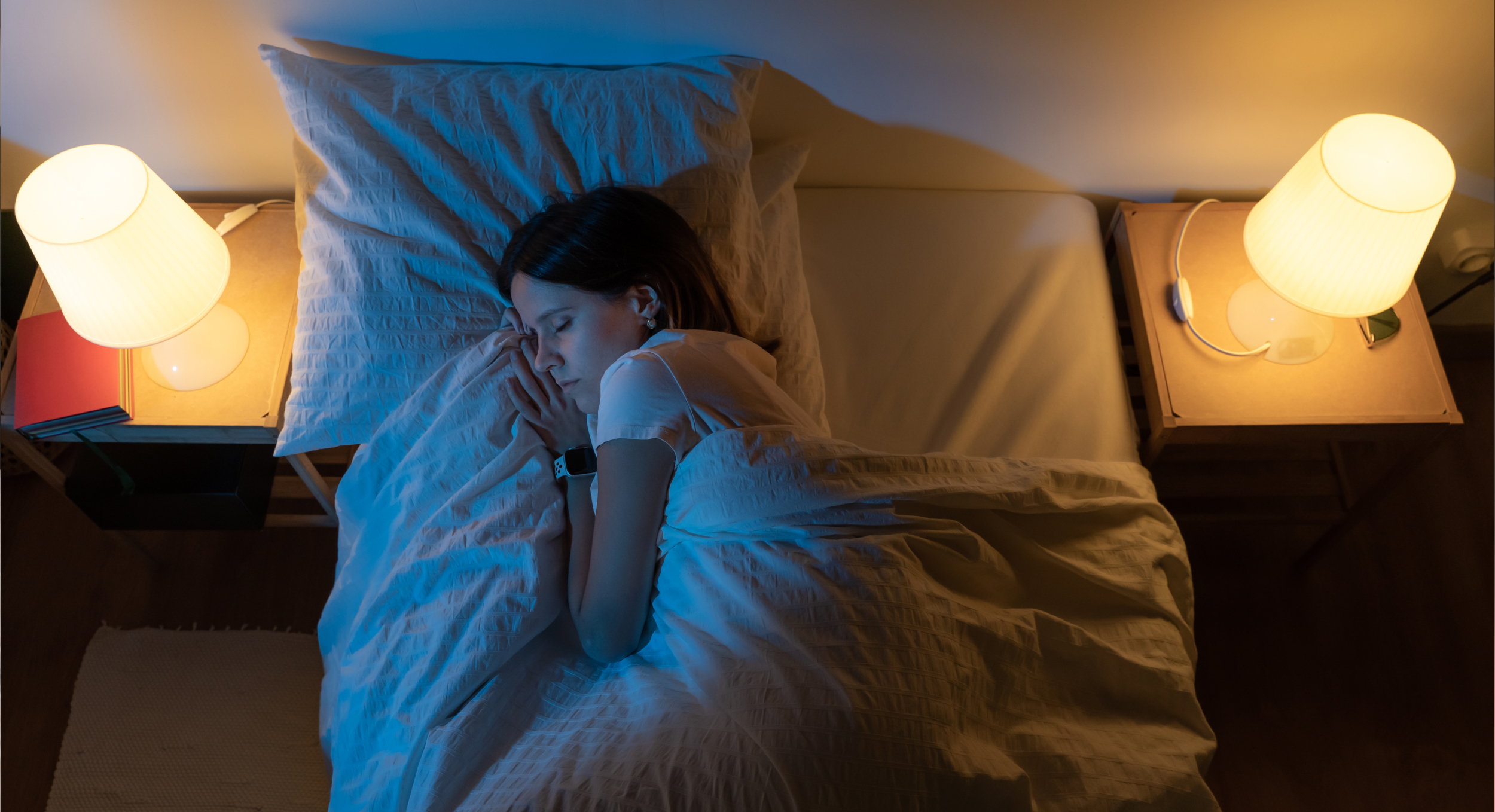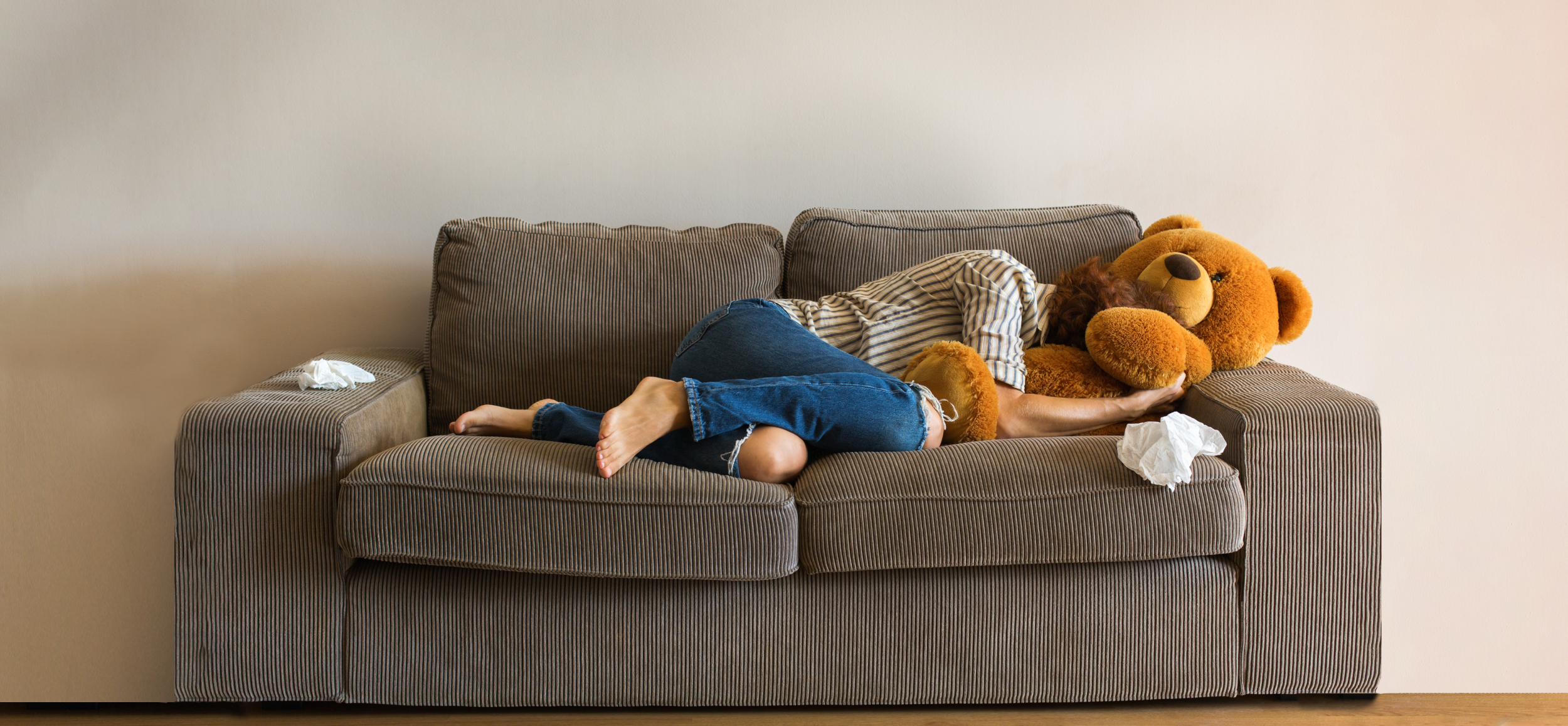
Unveiling Serene Nights: Enhance Sleep Hygiene with the Power of Meditation
The word “hygiene” isn’t one that most people associate with sleep, and, perhaps, they should start doing that. Sleep hygiene is extremely important for both our physical and mental health since so much of our body depends on good rest. At the same time, achieving that ever-so-crucial sleep hygiene can be a tricky affair.
And one of the most effective helpers in that affair is meditation, as we previously mentioned in our sleep meditation guide. This relaxing practice is great for fixing your sleep pattern and making your sleep much higher quality, just to name a few.
In this article, we’re uncovering the essence of sleep hygiene techniques, the role of meditation in achieving it as well as giving you some tips on how to have a good sleep hygiene and sleep environment setup.
Understanding Sleep Hygiene
What is sleep hygiene? The term “sleep hygiene” refers to a group of behaviors and routines that help a person have a regular sleep pattern and make their nights as restorative as possible. It normally includes setting up a regular bedtime schedule, avoiding sleep-disrupting elements, and creating a harmonious sleeping environment.
Sleep hygiene is extremely important since it has a direct impact not only on the quality of your sleep, but also your general physical and mental wellbeing. Aside from the obvious general sleep problems, some other negative results of poor sleep hygiene routine are daily weariness, impaired cognitive performance, and even severe emotional issues. And if you’re experiencing one, a few, or all of the above problems, this article is for you.
The Role of Meditation in Sleep Hygiene
It’s fair to say that a healthy sleep hygiene routine can realistically be achieved without meditation, however, including this relaxing practice in your daily routine will massively help you get a more restful night. That is because some of the main obstacles on our path to falling asleep are stress, worry, and numerous racing thoughts – and meditation can curb these very well. It acts as a transitional activity between the rush of the day and the peace of the night, aids in mental clarity, stress relief, and bodily preparation for sound sleep.

By easing our mind into the state of sleep, it makes our brains more likely to strike a good balance between the REM and non-REM sleep cycles during the night. And the way meditation benefits our physical health on top of mental is that through better sleep and less stress, we’re less likely to suffer from psychosomatic illnesses, and our immune system gets stronger.
Choosing the Right Meditation Technique
There are many great meditation techniques out there and many ways to improve your sleep hygiene, and the truth is that you can only find out which works best for you when you try them. For instance, you may be interested in mindfulness meditation – a method revolving around focusing on the present moment while accepting your thoughts as they come and go. This technique has a relatively low skill ceiling and is great for beginners that aim to improve their mental focus and reduce stress.
If you’re looking for a more physical type of relaxation, whilst still maintaining the benefits for your mental health, try progressive muscle relaxation. With PMR, you tense and release your muscles intermittently to take stress not just off of your mind, but off of your body as well.
Another useful technique is guided visualization, in which you picture serene situations or surroundings. It also has great benefits in terms of stress reduction, but on top of that, it develops our cognitive abilities such as imagination and creativity.
The list of techniques may go on forever – body scan, breathing exercises, mantras, you name it. The most important thing is that you should experiment with as many as you can to make a well-informed choice on the most suitable one(s) for you.
Creating a Pre-Sleep Meditation Routine
A useful strategy for improving sleep hygiene is to incorporate meditation into your pre-sleep routine. First, set up a dedicated time to practice meditation, ideally 30 to 60 minutes before bed. Then find a peaceful, cozy spot where you can sit or lie down comfortably. And just before you start, take a few deep breaths, close your eyes, and begin your preferred meditation practice.
Your mind might change gears during meditation, moving from the activities of the day to a state of calm. As a result, your body will follow suit as well – getting ready for the impending restful slumber. The most important thing is not to forget that to get the most out of meditation, consistency is absolutely essential. Making meditation a nightly practice can help you develop a feeling of rhythm and regularity by sending your body a regular signal that it is time to unwind.
Enhancing Sleep Environment through Meditation
It’s no surprise that the environment in which you sleep has a big influence on how rested you feel afterwards. That’s why it makes a great deal of sense to invest some time, effort and money into establishing a tranquil setting suitable for both meditation and sound sleep.
We’ve already talked about how exactly you can set up your perfect spot for rejuvenation, but let’s get into some of the basics in this section as well.
First, to make sure you’re physically comfortable, make use of cozy cushions, chairs, bolsters or blankets as supports to your body. Get creative and decorate your spot with items that make you feel good, such as plants, artwork, or symbolic objects that have special value for you.
Even something as small as changing the lighting to warmer tones can facilitate a more peaceful atmosphere. Not to mention, you should definitely consider incorporating calming sensory cues into your meditation routine – disperse calming smells like lavender or chamomile or use pillow sprays. And for audio stimuli, you can introduce soft noises like nature sounds or soothing music that can be played both during and after meditation.
Addressing Specific Sleep Issues with Meditation
All possible issues are too many to be featured in this section, but we’ll still look at some of the most common ones that can be helped by meditation. For instance, meditation with guided imagery might be very beneficial if you struggle with insomnia. Through the use of peaceful imaginary scenarios, you should be able to relax your mind, forget about stressors and fall asleep.
At the same time, mindfulness meditation is a useful technique for people who struggle with racing thoughts that keep them from getting any sleep. By encouraging you to be completely present in the moment, mindfulness can help you shift your attention away from your daily concerns and make it easier to fall asleep.
Lastly, if you wake up often during the night, it’ll be a good idea to focus on the breathing exercises. Those are considered some of the best for pure pre-sleep stress reduction and will likely make your rest uninterrupted and more fulfilling.
Tips for Successful Meditation and Sleep Hygiene
Last but not least, let’s find out how you can use meditation to its maximum potential – this is the sleep hygiene checklist:

- Create A Bedtime Ritual: As we mentioned before, rituals are great for preparing our minds for specific activities and take more enjoyment from those activities. Try including other forms of relaxation in your pre-sleep routine in addition to meditation – you may do some light yoga, read or take a warm bath, for example.
- Keep a Sleep Journal: You can keep track of your meditation practice and measure your improvement by keeping a sleep journal. Write down how long and what kind of meditation you practice, as well as how well you sleep each night. This helps you spot certain positive or negative patterns and make necessary corrections.
- Be Consistent: Meditation may not have an immediate impact on good sleep habits, and what’s more, it can be very difficult to stay loyal to the practice. Try your best to stay persistent and patient – it’s totally normal if you don’t notice any changes right away. If needed, take a day off, or make it so that your sessions generally don’t happen every day whilst still being somewhat regular.
- Reduce Screen Time: If possible. avoid using displays, such as those on computers, tablets, and cellphones, at least an hour before bed. Inhibiting the melatonin production is one of the effects of the blue light that screens generate, which makes it more difficult to fall asleep. Instead, spend this time relaxing pursuits like reading or light stretching.
- Reduce Alcohol/Caffeine Intake: This is especially important in the afternoon and evening. Both chemicals have the potential to interfere with sleep cycles and make it more difficult for you to get a good night’s sleep. As the night approaches, you may want to go for something like a decaf coffee or herbal teas.
Conclusion
So, what is sleep hygiene? Sleep hygiene is a thing that affects our everyday life in more ways than one – from the general feeling of restfulness to potentially having deep-seated health issues. To avoid said issues, you can and should try sleep meditation, which comes in different shapes and forms. According to your preferences, you can do mindfulness, progressive muscle relaxation, guided imagery or many-many others. And to make the most out of your practice, set up a soothing sleep environment, stay consistent, keep a journal and reduce your screen time as well as your caffeine intake closer to bedtime.






